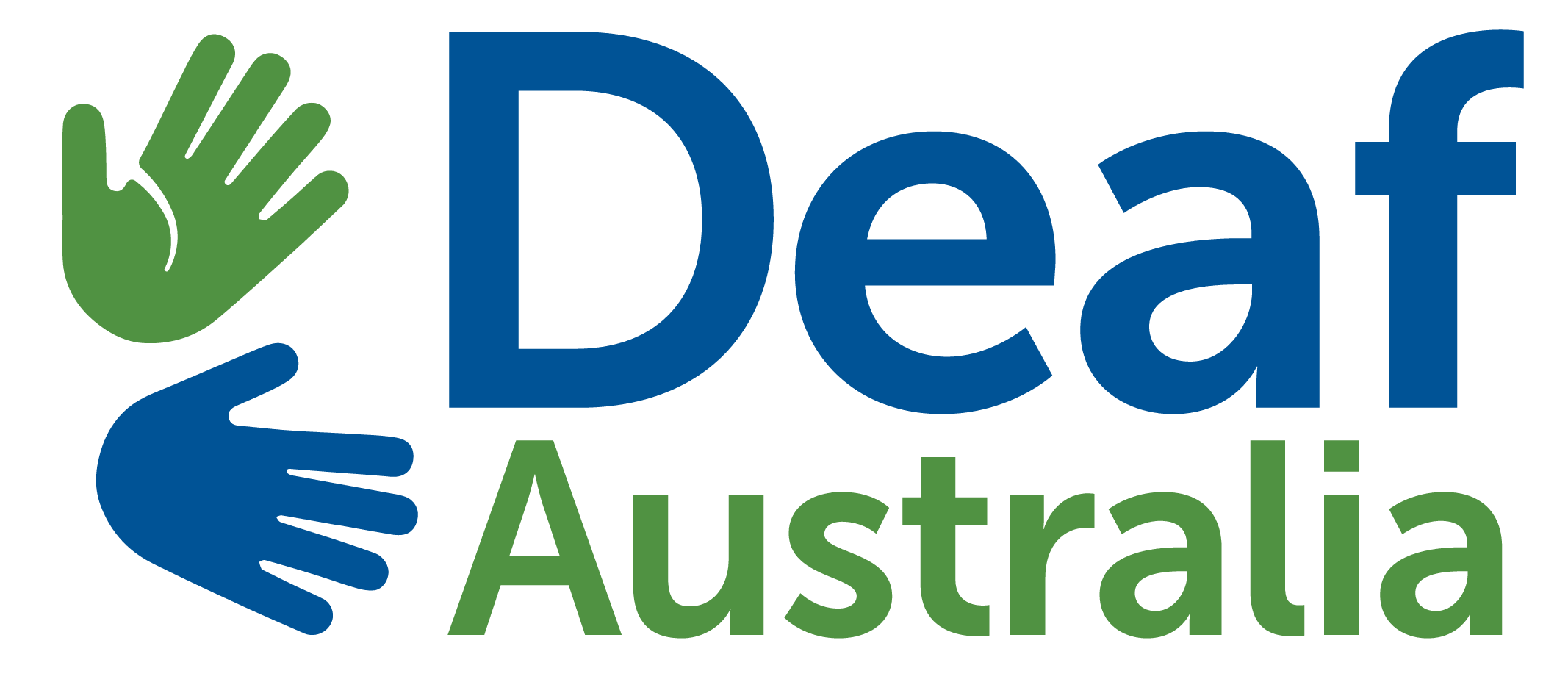No products in the cart.
Roundtable with Karen Peltz Strauss
The day before the M-Enabling Conference, Phil Harper organised, and Australian Communication Exchange sponsored, a roundtable meeting of invited people to meet with Karen Peltz Strauss who was one of the keynote presenters at the conference. Here’s a summary of what was discussed.
Abbott Government Silences Deaf Voice
Tony Abbott shocked the nation on Monday when he announced his new cabinet; eliminating key ministerial portfolios, including Disability, Women, and Mental Health. Deaf Australia has condemned the move, saying it will take Australia backwards.
“With this decision, Tony has already broken his promise made in his victory speech, saying there would be “no surprises, no excuses’,” said Deaf Australia Acting President Todd Wright today. “He has shown his true colours by further marginalising one of the most vulnerable minority groups in Australian society.”
“Cutting the Disability Ministry and Parliamentary Secretary for Disability role proves Abbott is out of touch with Australian people and wants to make sure we have no way to communicate our needs to the government,” said Mr Wright, “It is easy to ignore the needs of vulnerable people when there is no-one responsible for ensuring their wellbeing.”
This is the latest in a series of anti-disability decisions Abbott hoped would go unnoticed. Deaf Australia has been told that the Coalition’s last-minute policy costings, released the day before the election, appear to show plans to pay for election promises by axing 50% of the Employment Assistance Fund (EAF); an already pitifully small fund that covers vital interpreting, captioning and notetaking services, and workplace modifications for Deaf people in employment.
The EAF is an essential tool used by potential Deaf employees to gain access to job interviews, to secure a job, and to develop a meaningful career, by removing barriers in the workplace.
“If the EAF is cut, many Deaf people will be at risk of losing their jobs, as their employers will not be able to afford to pay for interpreters and other requirements that they need,” explained Mr Wright, “Forcing Deaf people back onto the dole is irresponsible and old-fashioned and will cost the government much more in the long run.”
Many Deaf employees find the current EAF funding level inadequate for their career development needs, so any cuts will be a huge step backward.
“Abbott is washing his hands from disability issues by removing critical ministry and parliamentary secretary roles in his cabinet,” explained Mr Wright, “He is out of touch with what the disability sector needs and will drag down long-term productivity gains in the workforce contradicting key Liberal policy.”
Deaf Australia is calling for the Abbott government to immediately reinstate the Disability Ministry and to clarify their commitment to the Employment Assistance Fund.
[content_box style=”green-2″ title=”What does this mean to you?”]
- We used to have a Minister for Disability in the Australian government, but not anymore
- Disability is now part of the Minister of Social Services as are many other areas
- Deaf Australia is worried this means the Australian government will lose focus on our disability issues
- The Australian government may be cutting the EAF (Employment Assistance Fund) to save money, this is not confirmed yet
- Deaf Australia is worried this means Deaf people will not get support in their workplace like interpreters, captioning, notetaking
- We want the Australian government to tell us what will happen to the EAF program
Captioning Working Group – Communique, September 2013
The captioning Working Group met for the second time on 22 August to progress further the purposes of the group.
Anton Sammons was invited as an independent member to the Captioning Working Group. We still have one available position for an independent person; please contact Karen Lloyd at [email protected] for more information.
A brief update:
Cooperative Campaign:
Alex Varley from Media Access Australia provided an update on the captioning campaign which Media Access Australia is conducting. It will identify and target several programs and encourage the participants to lodge complaints on these selected programs. The industry believes the problem of poor captioning is not systemic and will not review the issues systemically, unless they receive several complaints about the same issue on the same program. Media Access Australia currently has nine willing participants. If you wish to participate in this campaign, please contact Chris Mikul at Media Access Australia at [email protected].
Digital Inclusion and Disability Forum:
Kyle Miers, convenor of the Working Group gave a presentation to participants attending this forum organised by Infoxchange. His presentation focused on digital inclusion for deaf people. It was well received by participants who represented the community sector, local and state governments and the information technology industry. Infoxchange asked Kyle to write an article about communication access and this was distributed to over 90,000 subscribers. You can read the article here.
Captioning Principles:
One of the highlights of this meeting was the discussions about Captioning Principles. We agreed on ‘5 Stars Captioning’ principles which will provide us with a platform for best practice, best strategies and benchmarking so that captioning is of a high standard across all media/ video formats. The ‘5 Stars Captioning’ principles will also assist with campaign strategies. The group will continue polishing up the ‘5 Stars Captioning’ principles in the next few weeks.
Once the ‘5 Stars Captioning’ principles is finalised, we will work on a strategy for how to improve captioning across all areas of concern. This which will be discussed at the next meeting, to be held in November.


